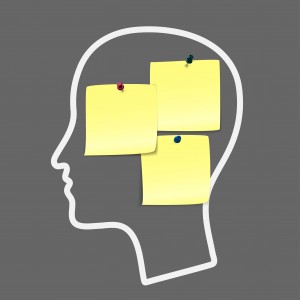Habitual memory
 from the OmniVista Health Learning News Desk
from the OmniVista Health Learning News Desk
The right lifestyle choices pay off in powerful ways. A recent survey of more than 18,500 adults showed that memory complaints dropped with increases in healthy habits—like eating right, not smoking, and getting regular exercise.
Subjects who reported even a single healthy behavior were 21 percent less likely to complain of memory loss. Those who reported two good habits were 45 percent less likely to lose their memory—and three healthy behaviors slashed risk by 75 percent.
And participants with four healthy habits? Well, they were 111 percent less likely to report memory loss. Meanwhile, those who didn’t report any healthy habits faced double the risk.
Some other noteworthy findings:
- Older adults with poor diets had nearly twice the risk of memory problems compared to their healthier eating peers. (In fact, healthy eating was tied to better memory in allof the groups.)
- Smoking nearly doubled the risk for memory loss among young adults.
- Regular exercise was associated with better memory among middle-aged and older participants.
- Obesity was a strong predictor of memory loss in the older groups.
As you can see, age is a major risk factor in memory loss. Statistics show that roughly 10 percent of adults over 65 struggle with dementia—and that number shoots up to 45 percent among people older than 85.
Luckily, the older participants in this study reported much healthier habits than their younger peers.
Results showed that the oldest subjects had a mean Healthy Behavior Index score of 69.8. (That’s compared with scores of 60.7 and 57.9 for the middle-aged and younger groups, respectively.)
Dietary choices in particular were healthier, with just over 80 percent of the older subjects reporting better eating habits.
What’s more, only 12.4 percent of the older study participants smoked. That rate doubled among the younger groups.
Being healthy, like most things, takes time, energy, and practice. In fact, this study showed that 14 percent of young people (that is, between the ages of 18 and 39) reported problems with memory.
So much for so-called “senior moments.”
SOURCE:
Healthy behavior and memory self-reports in young, middle-aged, and older adults. Int Psychogeriatr. 2013 Jun;25(6):981-9.